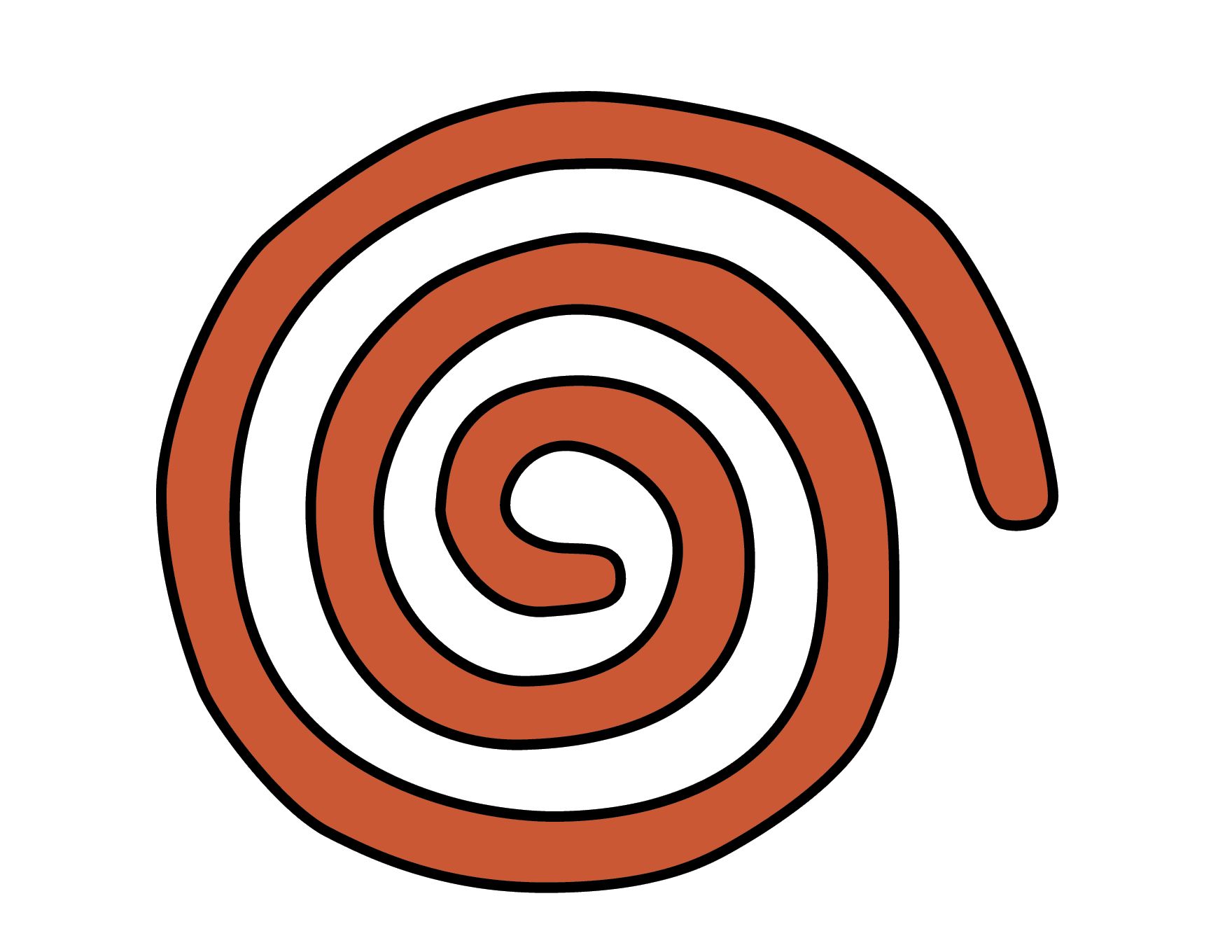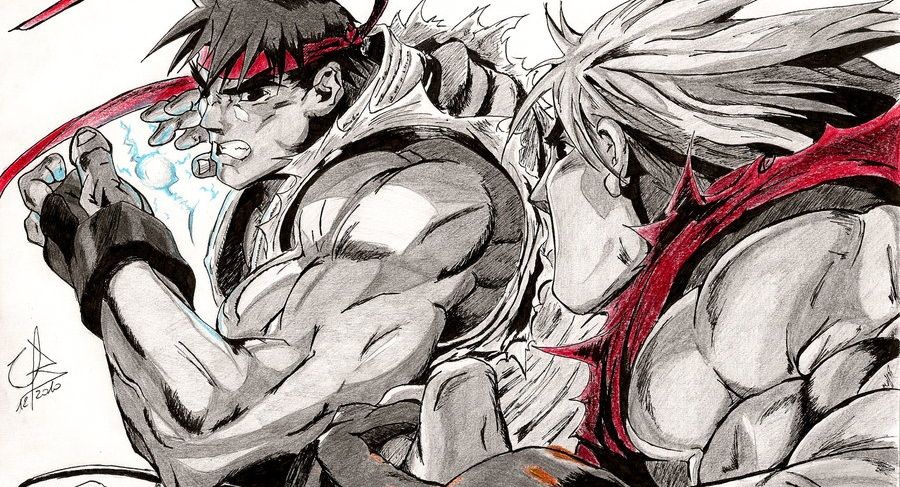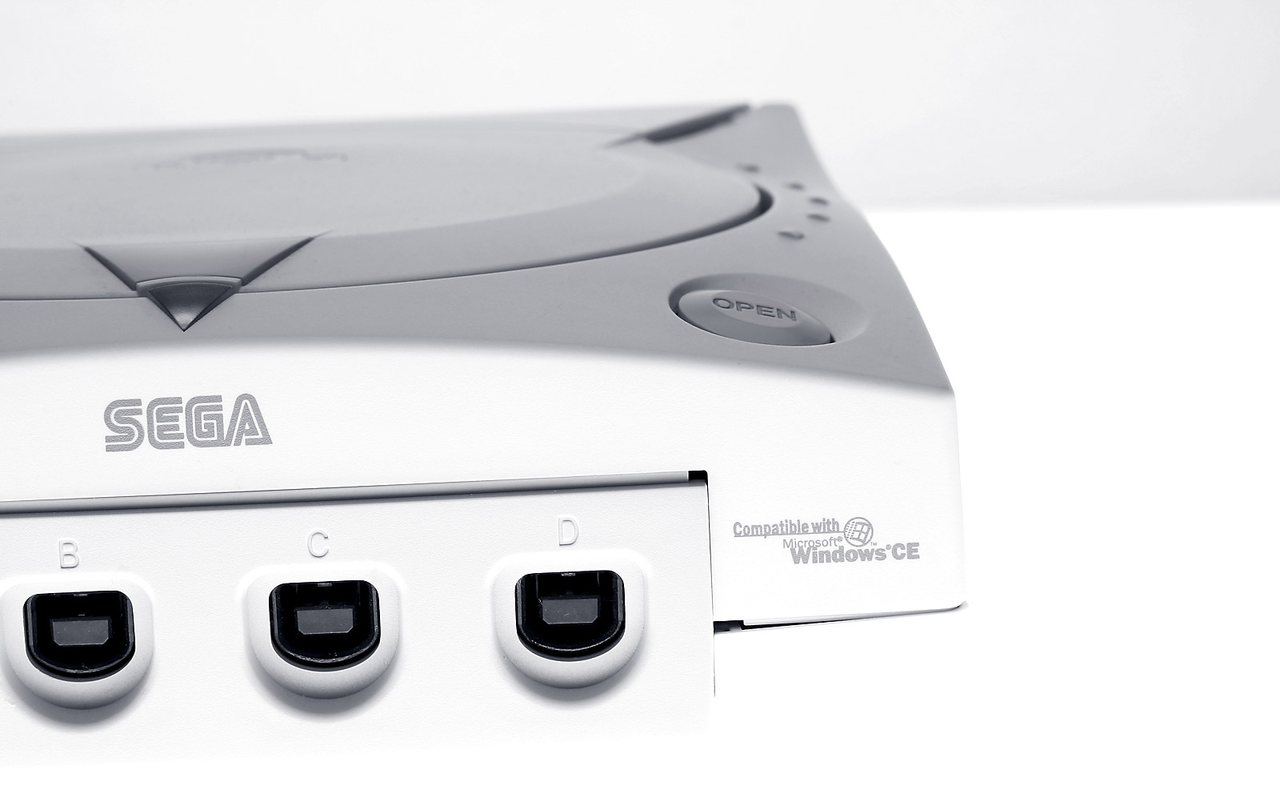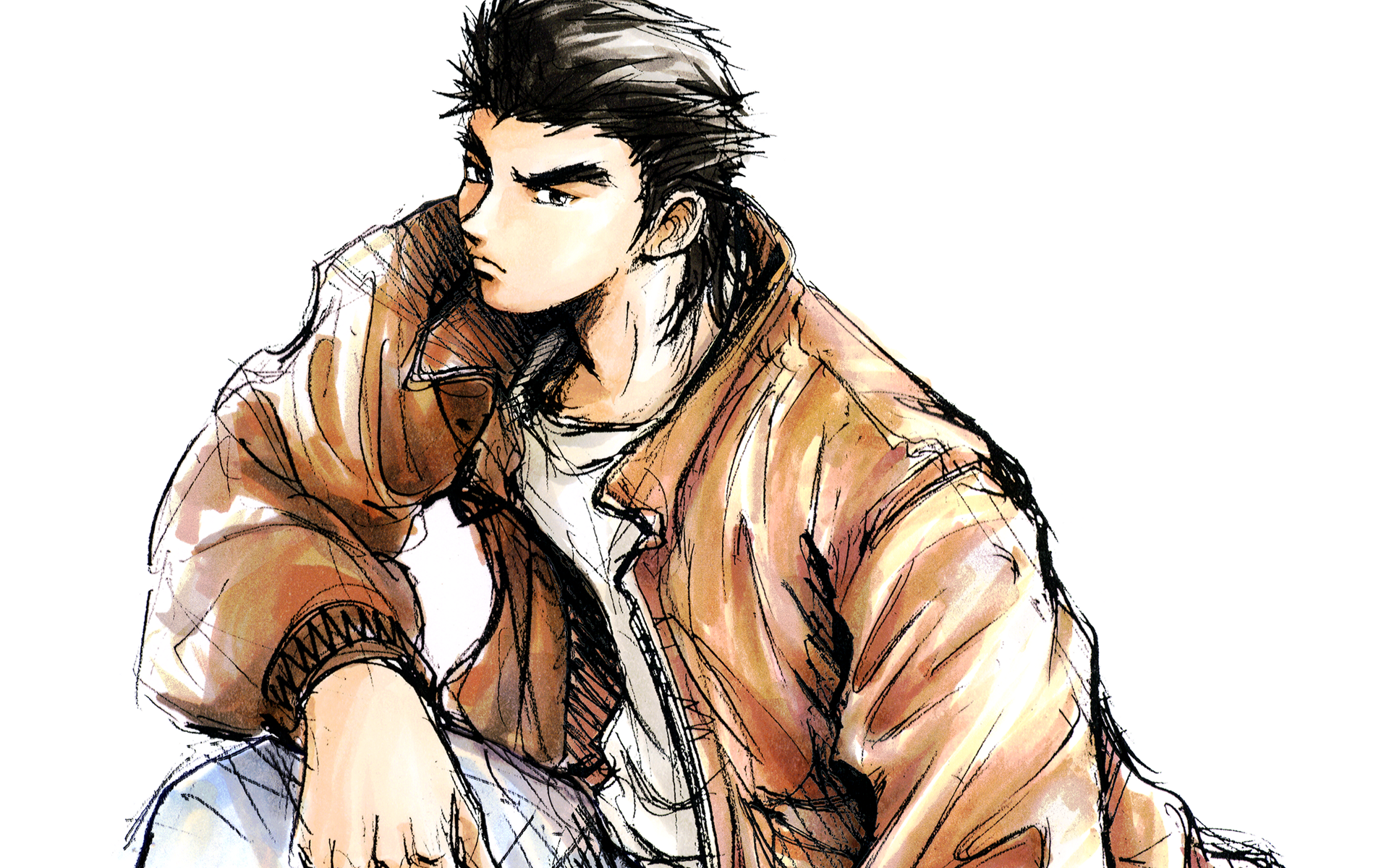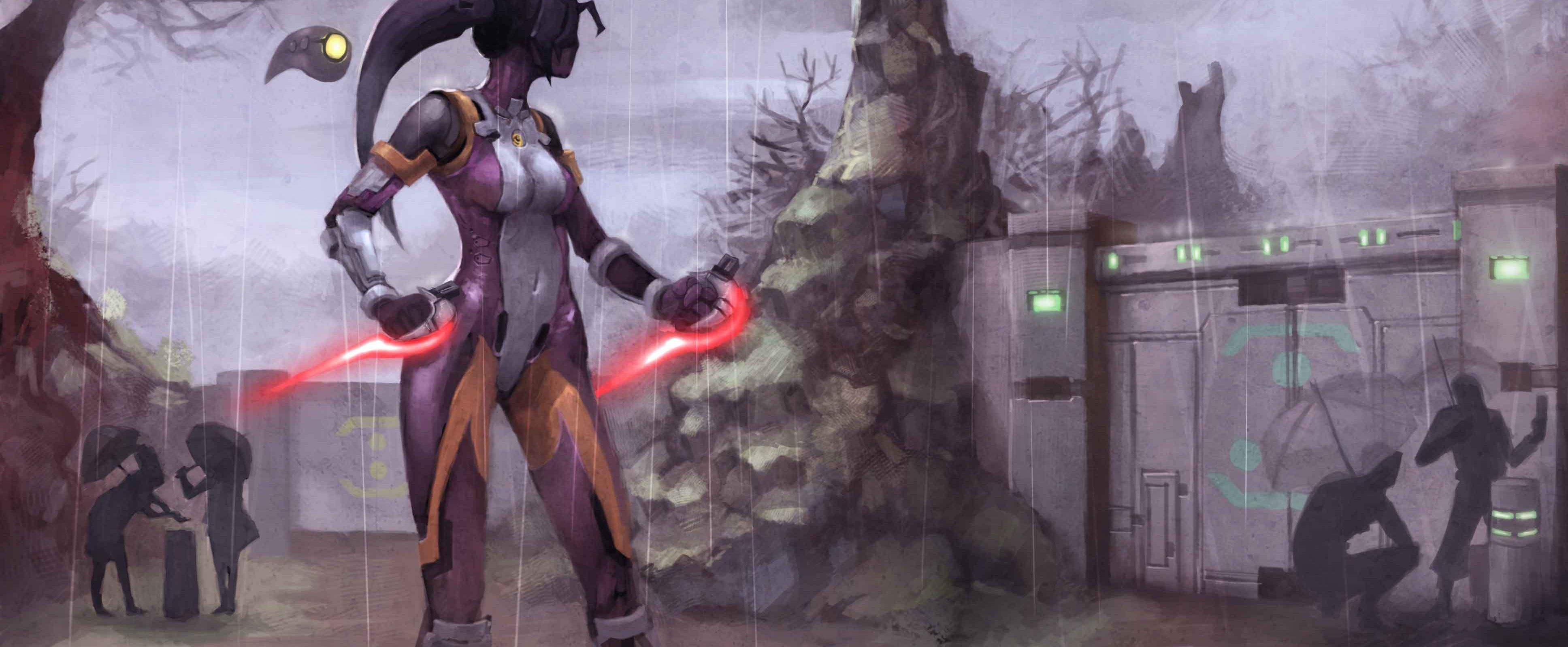It’s no secret that I love the Dreamcast. If you’ve read anything I’ve ever written about games, you already know this. In truth, I often equate much of my gaming identity with Sega’s coveted box of swirl-emblazoned goodness, and look back on my time with the system with a certain fondness that could probably never be accurately captured in mere words. While I started gaming long before the DC hit the shelves of my local Electronics Boutique (yep, it was still called that back then), I most closely associate my best adolescent and gaming days with that two year stretch of the console’s life from 1999 to 2001. I suppose I always knew, but it wasn’t until recently that I really began to appreciate how the Dreamcast played an integral role in my development not just as a gamer, but as a person. That’s a weighty proclamation, I know, but it’s not an idea I throw around without forethought. So if you will, bear with me for a few paragraphs while I explain how a simple video game system helped me understand myself and the human condition at large.
I’ve been enjoying games since I was very young. I originally got into them by watching my older brother play, but eventually manned the helm personally when I couldn’t stand idly by observing those beautifully animated pixels any longer. I started off with Mario, but over time worked my way up to Zelda and then rested on Street Fighter II. I played Street Fighter II fiendishly with my brother and his friends back in the early 90s, for what felt like years. We laughed, we cried, we broke controllers upon defeat, but above all else, we bonded over those many rounds of Ryu versus Ken, trying to prove to one another that we had what it took to handle our own. I didn’t know it then, but I see now that my brother, his friends and myself may not have had in common the things we typically need for friendships to flourish, but I think we had a unified understanding of what we were to one another through those many, many hours of Street Fighter.
It’s interesting looking back on those times; my brother and I, along with his friends, all came from some kind of divorced or broken home life, and I guess we all had our share of emotional conflicts to work through. But for those few hours each day during summer break every year, those things didn’t matter. It was as if time stood still. The world outside of Street Fighter’s, didn’t matter. There was a distinct level of psychological detachment from reality that gave us all, I think anyway, the needed break from our individual psychodramas. Those controller, those countless thrown Hadukens, they weren’t all for naught. They were the remedy, the relief we all needed from the far too serious ways of life. In that, we found comfort with each other. We learned to not be so guarded. We learned that protecting yourself in the game didn’t mean we had to protect ourselves around each other, no matter how much we had been hurt by life or those important to us.
Now, don’t get me wrong, there were people far worse off than us. We had roofs over our heads and food in our stomachs. But to us, in our own lives, in our own ways, we had been through a lot. We had no reference point to tell us otherwise, or that our problems probably really weren’t all that grand in the big picture, so they seemed no less significant to our minds. Thus, the act of huddling up in front of a television had value. In some regard, we were family because of it. We were the brothers we never had, but badly desired. We weren't connected by blood, but by cords and candy-colored buttons. Maybe that’s all we needed during those days. All we needed to feel okay just for a little while.
In 1999, I had been following Sega’s Dreamcast for months thanks to EGM, GameFan and GamePro -- my three favorite publications back then. It had been a few years since a new console came out; although three years is a drop in the bucket these days, back then it felt like an eternity. I was frothing at the mouth at every bit of news I could find on the system and, needless to say, I had been anticipating the Dreamcast more than I had awaited any console before it. This was probably due to how much I loved the Saturn when I got it, so I already held Sega in high regard. To me, the phrase, “Sega does what Nintendon’t,” applied to my gaming habits and preferences.
I didn’t end up getting a Dreamcast on launch day, but I got it for Christmas that year from my dad. He had gotten me two games with the system: Expendable and Blue Stinger. (I’m not even sure I asked for them, really -- I think he just picked them up randomly, probably based on the cover art.) No less, upon my ravenous unwrapping of the present and console itself, I immediately ran to the closest bedroom with a television and fired it up. Though my brother was older than me, and hadn’t played games for a long time at that point due to college and working, he always seemed to have an interest in them from afar. Mind you, he and I have always been close, but during those years, and considering our age gap, I think we were both more caught up in our own friend circles than each other. We hadn’t grown apart, but we weren’t as tight-knit as we were when we were younger.
So, when powering up the system for that first time, and having him with me to lay eyes on the thing, meant a lot. It wasn’t a meaningful experience that I was totally aware of right then (in truth, I was most concerned with playing my shiny new console), but there was some kind of emotional, nostalgic sentiment which bound us together at that moment. Even at the age of 20, I could tell he was a kid again, caught up in the excitement of a new system, new graphics and new games. So, I obliged our unbridled enthusiasm and popped in Blue Stinger, and the magic began. He and I were enamored with the graphics, the controller, the VMU -- everything.
We played those two games for hours that night while the Christmas party went on in the living room. We lost track of time and others, and it was just us and videogames again – just like it had been many years before. On the way back home from my dad’s that evening, he and I talked about the Dreamcast over the course of our hour long drive. We laughed, we recalled memorable moments, but most importantly we had made memories; memories so strong that I’m here writing about them some thirteen years later. Once again, I was shown that video games, in my life anyway, meant family. They were the needle sewing back together a hole in the fabric that had been growing increasingly wider with each passing year.
The year 1999 came to a close, and life went on, as did the Dreamcast and my love affliction with it. I played it every day after I came home from school and could be found reading the latest issue of Dreamcast Magazine in just about every class. It was official: I was obsessed. Not a bad obsession, but I had found my calling. When growing up, I played sports, not because I wanted to necessarily, but more so because it was encouraged by my family. I played football, I swam on a competitive team, I gave baseball a shot, and even stretched myself into the realm of gymnastics. I enjoyed them, sure, but they never felt like me. Video games, however, felt like me. This was further cemented during the year 2000 because of the Dreamcast. It was the first thing in my adolescent life that made me feel fiery inside. It gave me immense happiness, and it had a purpose outside of being a mere game machine.
Around that time, my mother and stepfather were going through a rough patch. Because of this, they argued quite a bit and quite loudly. It was a lot to take in during those days when one’s emotional lability is already in-question due to the natural progression of life (adolescence). After all, I had enough on my plate: hormones, girlfriends and the mounting pressure from school just to name a few. Typical stuff, really, but nevertheless stressful and exhausting. When coming home from school, I just wanted to relax. The arguing made that difficult, though, so as a way to escape I’d go in my room, shut the door, turn up my TV and start playing. Since the Dreamcast was my new baby, it was the system I ran to most often. Sonic Adventure, Carrier and Bangai-O carried me through those months of instability and household turmoil.
Reflecting on it today, I recognize that playing them allowed me to cope. They allowed me to feel certain in a time of uncertainty. I felt secure in those worlds because I trusted myself with the controller, but I also trusted that the game would be predictable. I trusted that if I pressed a button, my character would respond in a way I knew and could foresee. Therefore, I understood that as long as I was confident in myself, I could take on any obstacle the game threw my way. Sure, I could die, but I could start over as well. There was complete safety -- I knew, in the game, nothing bad could actually happen to me. With girls, with my parents, with school, I wasn’t so sure. I never had the highest self-esteem. Of course, I didn’t have the worst either; realistically, I was somewhere in the middle, but those games provided me with a way to practice feeling good about myself.
That year dredged on, but things smoothed over with my parents. I continued playing my Dreamcast, though, and continued loving every inch of it. It wasn’t until Christmas that I got to experience the system’s potential fully. Christmas morning of 2000, I opened up my second gift from my mom and stepfather only to find the cover of Shenmue staring back at me. I was ecstatic – it was the present I had wanted most. I wanted it so badly that I spent six hours that day playing it. I skipped dinner so I could continue exploring Dobuita. My brother, cousins, and even parents would come upstairs and check out the game. They probably weren’t as amazed by it as I was, but it did feel like they thought it was pretty neat; I think a game, with such life-like graphics, displaying a city that looked so realistic, really showed them that video games were evolving to the point of being more than Frogger and Pong -- two titles my parents often referenced back then when I spoke of games.
To this day, that is my most memorable Christmas moment. I can recall it so vividly. Along my venture through life, I’ve experienced and subsequently forgotten many things – even important things. But that memory is clearly etched in the annals of my most precious recounts of my childhood. It was another display of video games bringing people together, even if it was just for a moment. I’m not sure that whole situation would have transpired without Shenmue.
And then I move to the next month, January – January 31, 2001 to be exact. That was a Wednesday, and my mom picked me up early from school. I thought, and still think, this was one of her defining moments as a mom, especially considering she was fairly rigid in her adherence to norms and societal rules, but she had signed me out early just so I could go to the store to purchase Phantasy Star Online. I waited in line that day for PSO -- something not necessarily worth mentioning if it weren't for the fact that, back then, waiting in long lines for video games wasn’t a thing. That day, though, the line wrapped out of the store and into the general mall space. I waited it out nevertheless and picked up PSO, a Dreamcast keyboard and the game’s guidebook, reading it along what felt like the longest ride home ever.
I played PSO a lot that night, but it wasn’t until the weekends, when my good friends came over, that I finally took the game online. I had never played anything online before, so this felt extremely exciting. Regrettably, the closest jack to plug in my Ethernet cord was down the hall, so we ended up playing the game with the Dreamcast and TV itself halfway between my room and the room down the hall. Meaning to say, we set up shop nearly smack dab in the hallway. Over that next 6 hours, well into the early morning, we experienced online gaming for the first time, together. We had been friends for a long time, and had been through a lot with each other, but never something like this.
It was a unique endeavor to share with someone, like how riding your first rollercoaster with a friend is. It all felt so foreign and new that it was difficult not to recognize the poignant mark it made on our friendship. We had been best friends made better by a single game. During that time, you make a lot of memories -- being in high school, coming of age, all that stuff. To me, this all was the perfect storm for making lifelong stories. This is evident in the fact that we still reminisce about those days. We mostly talk about our time chatting with others while playing, rather than the game itself. While we still cherish PSO, it’s the times in which we met real people through our adventures, learned about them, shared stories and strengthened bonds that are the most touching.
As a kid who wasn’t terribly social up and to that point, talking with strangers, putting myself out there to let someone get to know me - even with the anonymity of the Internet present - felt like an important part of my development as a person. Better still, I was also exposed to all different kinds of people, from various parts of the country, which felt refreshing. As someone who grew up in a pretty standard, middle-class suburban environment, diversity wasn't something readily available. From the races to choose from in-game, to the actual people behind those avatars, I learned that people, dissimilar to me in some aspects yet very alike in others, existed. If nothing else, this broadened my small sense of the world to something just a little bigger.
Having said that, thanks to PSO, I believe I also learned to communicate with others, and that it was okay to be a vulnerable person in a world filled with other vulnerable people. I’d eventually go on to be involved in all sorts of activities in school that I don’t think I ever would have been part of if not for those sleepless nights stepping outside of my comfort zone to meet new people as I took in all the sights and sounds of Phantasy Star.
I'd even say that PSO taught me how to be part of a team, let go of control and work together with others for a common cause. That had been a lesson not easily learned for me during my time in sports when I was younger -- back then I wanted to be the star player. Taking that mentality into a game so heavily embedded in a cooperative framework, however, spelled certain doom. I think when we try to be the star player, it's a vie for control; indicative of a profound sense of lacking control in other vital areas of our life. The problem with this is obvious: in PSO, if you try and go at things in a lone-wolf style, you're probably going to die in your trysts. Phantasy Star Online is designed to require unique forms of cooperation among all players. I learned this quickly and, though it wasn't a conscious thought, I see now that I was able to surrender that need for control to enjoy myself more.
In the end, the Dreamcast allowed me to learn so much about relationships, people, the world and, really, myself. If nothing else, it taught me how to value and appreciate the connection between two people. It came about at a time in my life when I wasn’t sure about a lot of things. Just like that iconic swirl logo, I felt dizzy and unsteady on my own. But having that beautiful, little, grey box in front of me each day I came home was what grounded me, and was the catalyst to the growth I needed. Would I have learned all of these lessons without the Dreamcast? Yeah, probably, but it may have been without such strong remembrances. Occasionally, I find myself still trying to re-create some of those memories. When this happens, though, I have to reel myself back in and accept that those recollections are perfect just where they are: in that large book that resides in all of our heads, with words and images of the precious events we’ve experienced throughout the course of our hectic lives. I know that I’m a happier person because of that two year run with Sega’s often under appreciated machine.
As much as I'd like to say I still own that particular Dreamcast unit that gave me those memories, the fact is I don't -- it was more than likely lost in a move, or sold, or broken somewhere along the way. I've lamented that thought many times over the years, but I realize now that maybe that's the way it's supposed to be. Our possessions aren't what keeps our memories intact. They might be tangible items that help remind us of a time that was and isn't anymore, but the truth is no matter where those things go, the memory can't ever be taken from our minds. Better yet, we can do new things to honor those we've loved and lost. After all, that's what this is: the most sincere, the most honest article I've ever written as a means of paying tribute. Considering the paramount role Sega's Dreamcast played in my life, it's the very least I can do.

